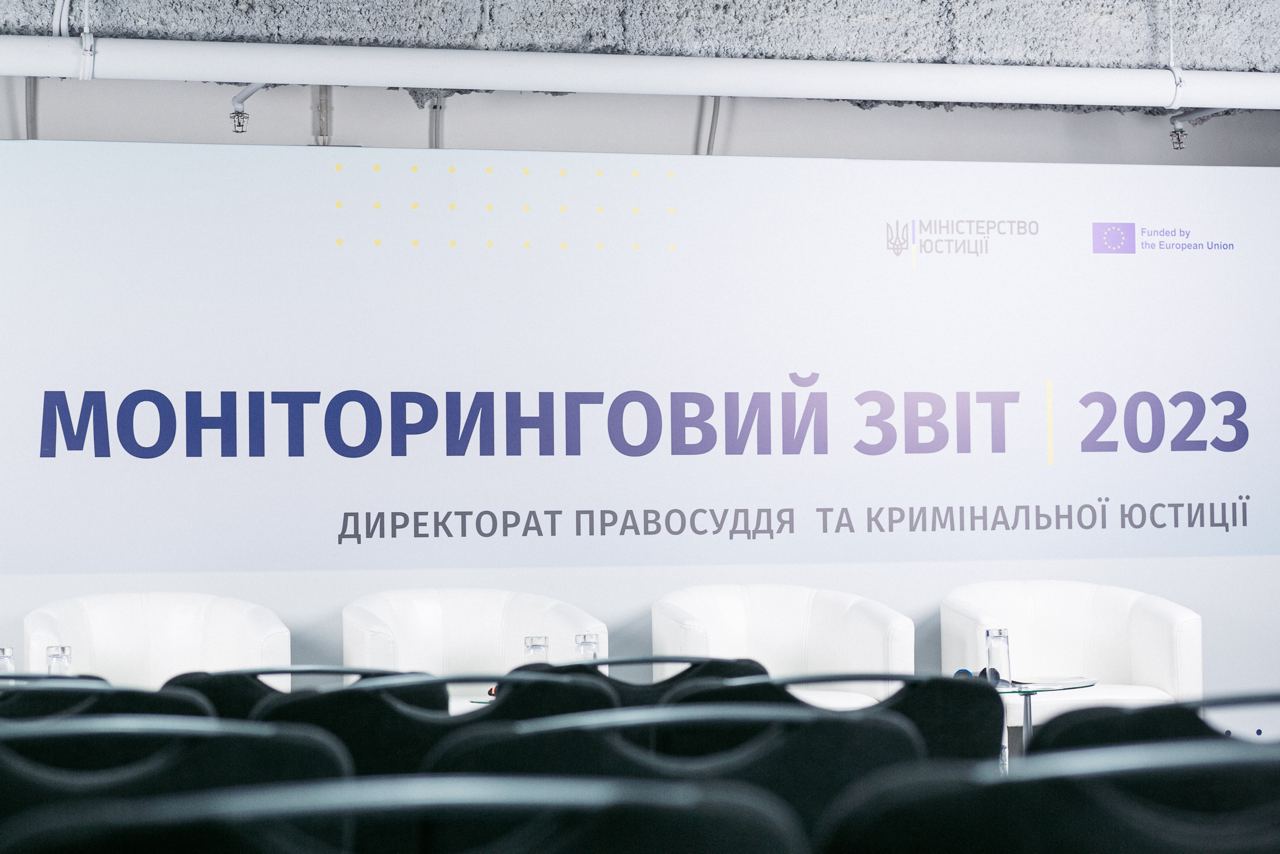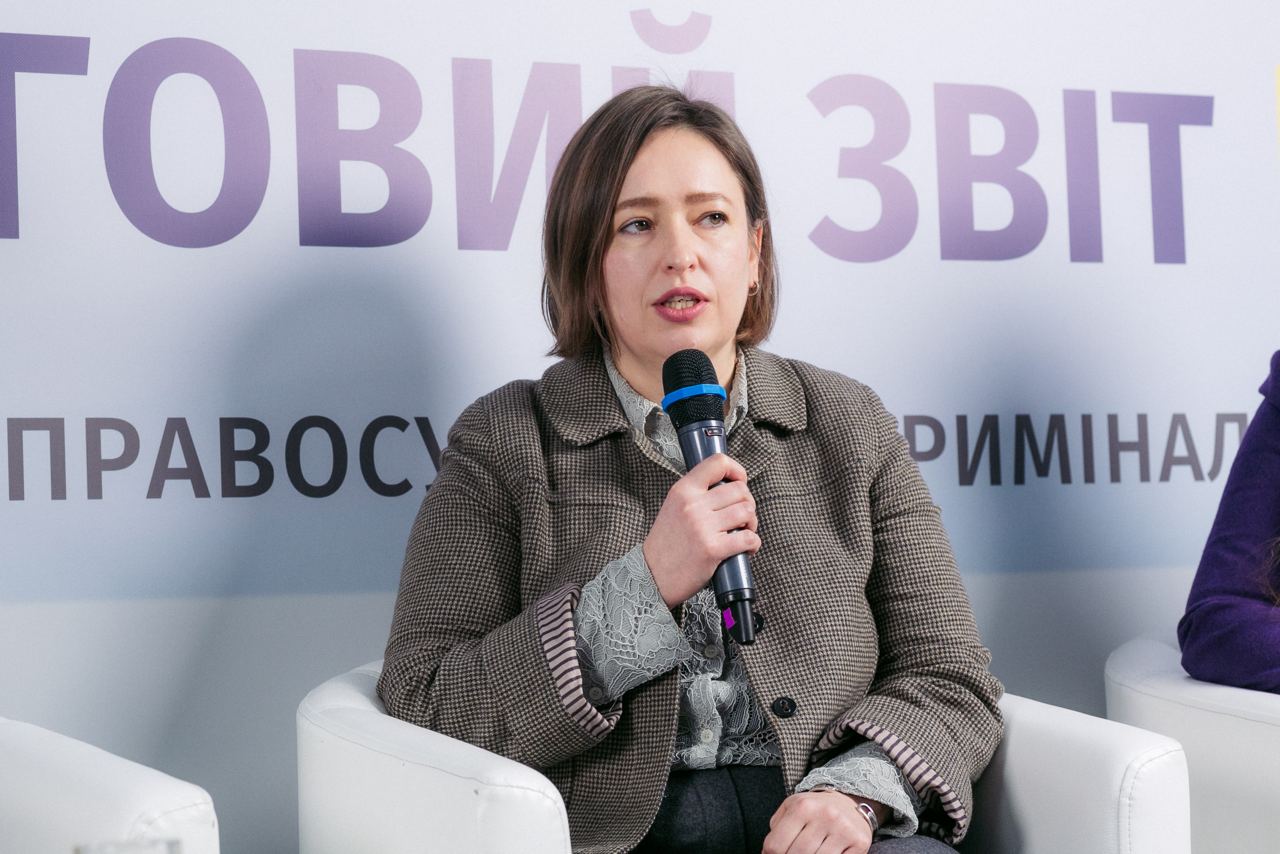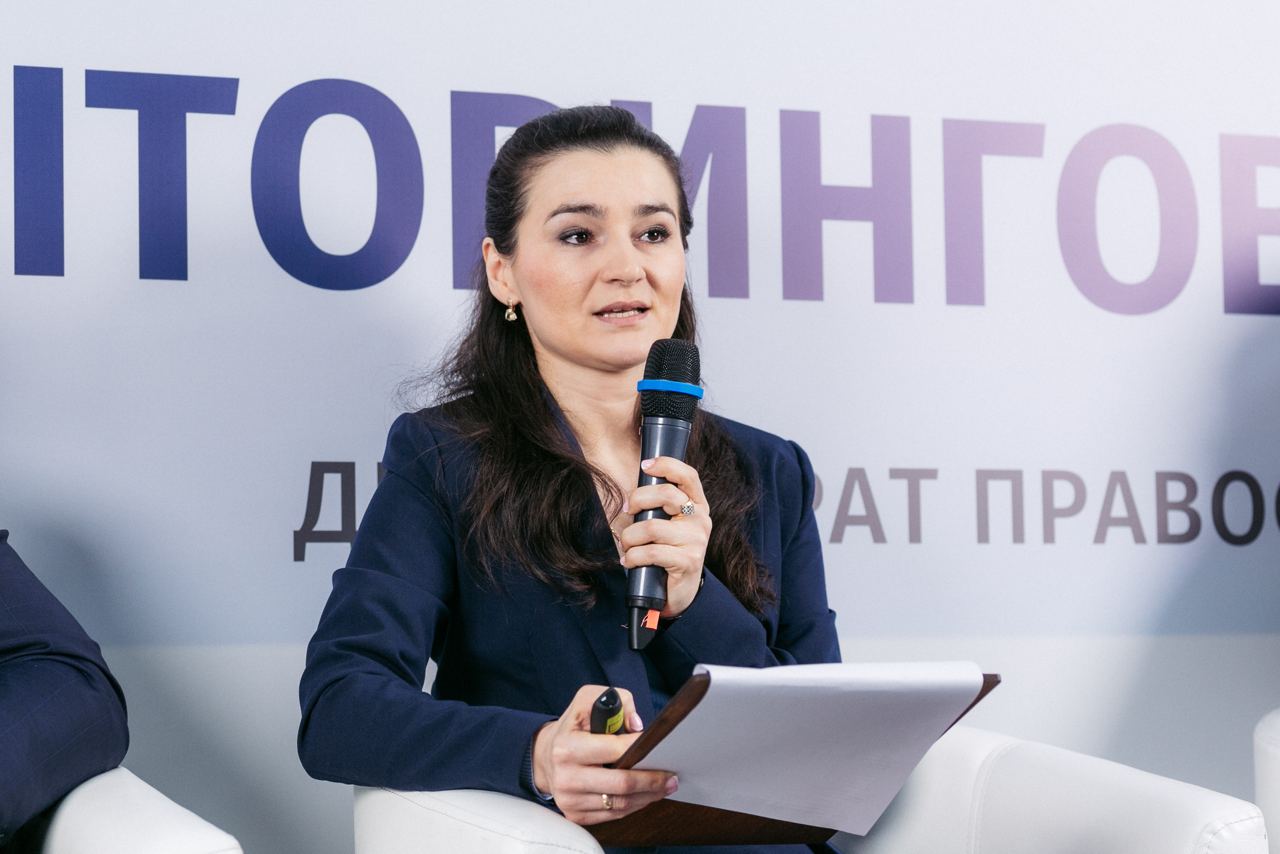As part of the Presentation of the Monitoring Report-2023, the Enforcement of Court Decisions was Discussed in Detail

On 5 March, as part of the presentation of the Monitoring Report-2023, the section dedicated to enforcing court decisions was discussed. The document was produced by the Directorate of Justice and Criminal Justice of the Ministry of Justice with the expert and technical assistance of EU Project Pravo-Justice.
This year, the authors of the report paid special attention to such topics as enforcing decisions against persons subject to sanctions; voluntary enforcement of decisions; and the functioning of the Automated System of Enforcement Proceedings as a public electronic register.

“The topic of applying sanctions is complex for Ukraine and other countries using this tool. Today, we see few decisions on how to apply sanctions and what the consequences of their application are for the parties to binding relations. Moreover, there is no systematic research on this issue at the national level of many countries,” said Iryna Zharonkina, Enforcement and Protection of Property Rights Component Lead of EU Project Pravo-Justice, in her welcoming speech.
She noted that the Ministry of Justice of Ukraine has done a great job in applying sanctions: it has summarised, analysed and proposed mechanisms that would allow solving problems in enforcement proceedings resulting from the impact of sanctions restrictions.
Iryna Zharonkina said that EU Project Pravo-Justice is currently conducting analytical research on challenges in enforcing decisions against persons subject to sanctions. This research was also used while producing the Monitoring Report of the Ministry of Justice.
“Using specific cases, we look at how the imposition of sanctions affects the fulfilment of obligations and enforcement proceedings,” the expert said.
Speaking about voluntary enforcement, Iryna Zharonkina pointed to the European Commission’s report on Ukraine in the context of its accession to the EU, which states that Ukraine should take comprehensive measures to promote enforcement reform. “Enforcement of court decisions is not only about coercion. We should also develop voluntary enforcement of court decisions. This applies to citizens, businesses and the state,” said Irina Zharonkina.

Oleksandr Oliinyk, Director of the Department of Justice and Criminal Justice of the Ministry of Justice of Ukraine, said that the presented Monitoring Report includes only the issues that now have the most significant impact on the enforcement of court decisions.
“The problem of enforcing decisions against persons subject to sanctions became particularly acute during Russia’s full-scale invasion. After a number of legislative changes were adopted, there is a competition between the sanctions legislation and the law ‘On Enforcement Proceedings’. In our report, we offer ideas on resolving conflicting issues and propose further legislative and rule-making developments,” said Oleksandr Oliinyk.

Speaking about the enforcement of decisions against persons subject to sanctions, Nataliia Pokynchereda, state expert at the Ministry of Justice of Ukraine, noted that this was the first time such analytical monitoring was undertaken. She said that the Monitoring Report attempted to propose regulatory options for the following dilemmas in the enforcement of court decisions: foreclosure on the property of a person subject to sanctions seized in criminal proceedings; debt collection from a non-sanctioned person to whom special restrictive measures have been applied both before and after the opening of enforcement proceedings; debt collection for the benefit of a person subject to sanctions.
“To solve the problem, we propose to define the specifics of enforcement involving persons subject to sanctions at the legislative level,” said Nataliia Pokynchereda. Among the proposals, despite the sanctions restrictions placed on the party to the enforcement proceedings, there is a proposal to make it possible to enforce decisions in socially sensitive categories of cases (e.g., alimony or compensation for damage caused by injury or loss of the breadwinner), decisions where the amount of debt or value of property does not exceed a certain amount (e.g., 10 or 20 minimum wages).
Veronika Tkachuk, state expert of the Expert Group on Justice and Criminal Justice of the Directorate of Justice and Criminal Justice of the Ministry of Justice of Ukraine, spoke about the challenges of voluntary enforcement of court decisions and how to solve them. The speaker noted that until 2016, the mechanism of voluntary enforcement of a court decision was enshrined in legislation. However, this tool was often used by debtors to delay the enforcement of judgments, resulting in more complaints against the actions of enforcement officers and a decrease in state budget revenues.
Speaking about the problems of the functioning of the Automated System of Enforcement Proceedings as a public electronic register, the expert of the Ministry of Justice said that it is proposed to harmonise the provisions of the laws “On Enforcement Proceedings” and “On Bodies and Persons Enforcing Decisions” with the law “On Registers”.

Oleksandr Banchuk, Deputy Minister of Justice, emphasised that reforming the enforcement system is essential on Ukraine’s path to EU membership.
“Improving the level, culture and traditions of enforcement of court decisions is a part of our ‘homework’ on the path to EU accession, as well as a requirement in the context of the ECHR jurisprudence. Therefore, we will move towards enhancing the enforcement of judgements as the final stage of justice,” summarised Oleksandr Banchuk.
Text of the Monitoring Report-2023.
Presentation of the Monitoring Report on the Enforcement of Court Decisions.